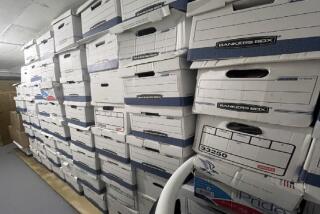Judge in Padilla Case Sets Rules on Secret Materials
FORT LAUDERDALE, Fla. — A federal judge put in place temporary rules Tuesday to prevent the leak of classified information in the case of alleged Al Qaeda operative Jose Padilla.
While agreeing to rules proposed by prosecutors, U.S. District Judge Marcia Cooke said she would consider suggestions from defense lawyers, who complained that the restrictions would hurt their ability to defend clients charged with supporting terrorism overseas.
Government lawyers told Cooke during a hearing in a federal court in Miami that they would soon turn over classified material related to the case. They asked Cooke to bar defense lawyers from sharing that evidence with their clients.
Without such an order, prosecutors argued, nothing would prevent Padilla, a former Broward County, Fla., resident, and two other men charged in the terrorism conspiracy from passing on sensitive national security information to accomplices.
Cooke agreed to the strict rules requested by prosecutors. But after hearing objections from defense attorneys who called them overly broad, she said she would consider changes to make them less burdensome.
Cooke’s order sets the stage for more wrangling over what evidence ultimately will be presented to a jury in a case that involves government secrets.
Under federal law, government lawyers must turn over potentially useful evidence to the defense. Federal judges must balance the right of a defendant to receive a fair trial against the government’s need to protect classified material.
Under the rules now in place, the classified material can be handled only by those with appropriate clearances in an approved area of the courthouse. The rules prohibit attorneys from even discussing classified information outside that area.
More to Read
Sign up for Essential California
The most important California stories and recommendations in your inbox every morning.
You may occasionally receive promotional content from the Los Angeles Times.










